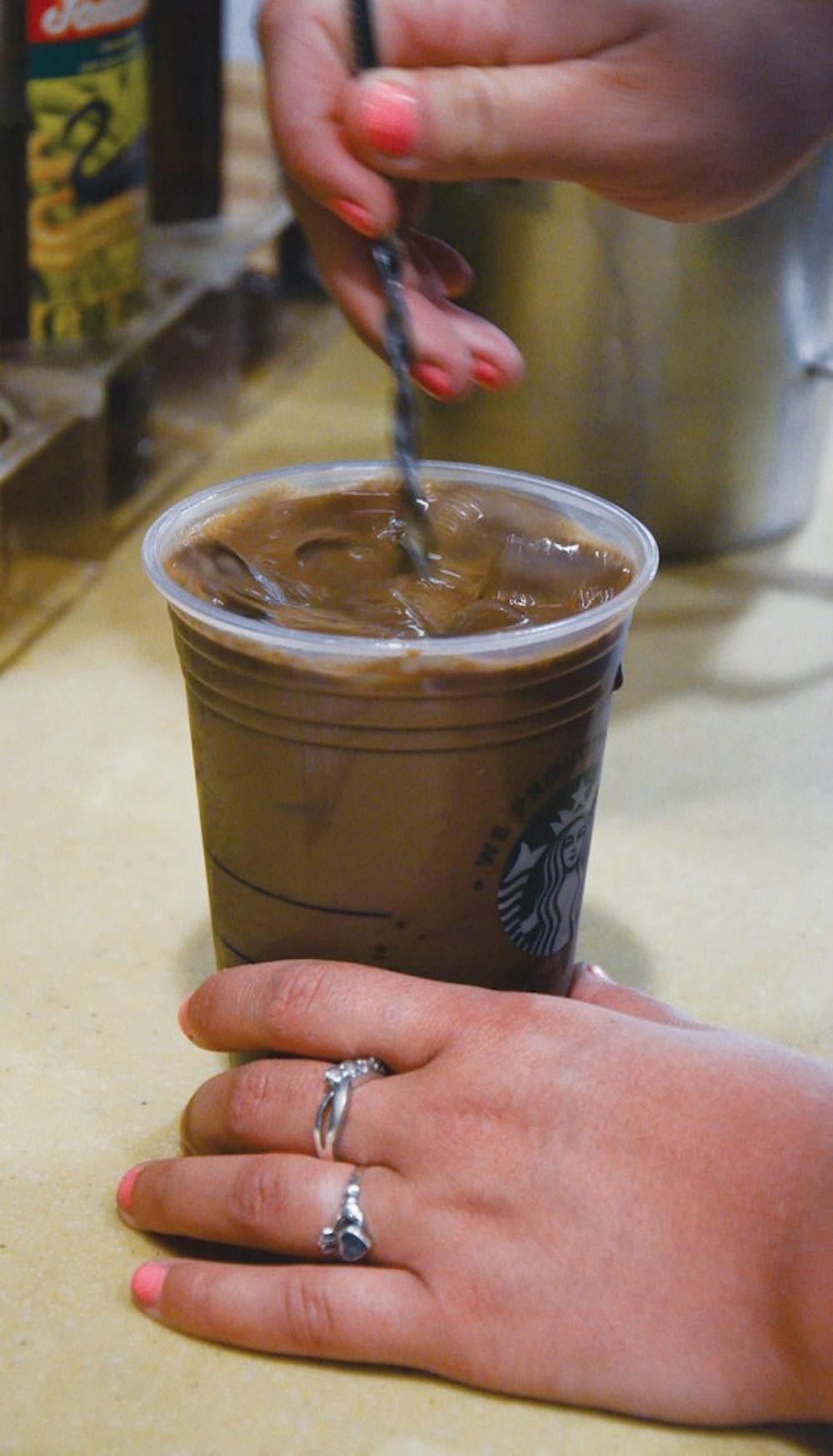Studies reveal coffee may lower health risks and possibly increase the lifespan of adults.
New studies have shown coffee has more benefits for adults than just a mid-morning pick-me-up.
People from the ages of 50 to 71 have a lower risk of developing diabetes, heart disease or other health problems, according to an article from Consumer Reports published in The Washington Post. However, there are still some guidelines students should keep in mind while getting their caffeine fix.
“What we know is studies are starting to show that moderate caffeine consumption can be protective against chronic diseases in the long run,” Deborah Murray, nutrition professor of applied health and sciences. “Diabetes, heart disease and hypertension are what you see most (studies) about.”
Along with the physical benefits, coffee might have some mental advantages. Those who drank four or more cups of caffeinated coffee per day were 20 percent less likely to develop depression than nondrinkers, according to a study by the Harvard School of Public Health.
Murray said nutritionists once thought coffee could not give people the hydration water could. However, that’s not the case.
“It can contribute to hydration,” Murray said. “(It doesn’t have to be) always water, water, water.”
Ohio University offers coffee in ten locations on campus.
“It’s a necessity, but it’s a necessity I enjoy,” said Myra Cooper, a sophomore studying civil engineering. “It just makes my day better. If I don’t have coffee, my day is miserable. So, I might as well drink it to get me through my day.”
Cooper said her favorite drink is a vanilla latte — a drink the baristas at the Front Room know as her “usual.”
Natalie Graham, a senior and coordinator of the Front Room Coffeehouse, said the café goes through about 25 pounds of coffee and 10 pounds of espresso on a normal weekday.
Depending on a student’s course load for the day, there is a method to what kind of coffee to order.
“Although a darker roast coffee is more bold in flavor, it contains less caffeine than lighter roast coffee,” Graham said. “If an individual loves the taste of coffee, a darker roast like Starbucks Cafe Verona would be best suited for them. If a customer is seeking a mid-afternoon caffeine boost, an espresso drink or lighter roast coffee like Starbucks Blonde roast would be a great choice. “
A grande caramel macchiato, although popular, also contains 32 grams of sugar — something that Murray said could decrease the benefits of coffee.
“The sidebar is how you drink your caffeine. Creamer-based coffees (with) a lot of sugar aren’t a good thing,” Murray said. “Caffeine can increase focus — increase attention span for someone who needs concentration. Although, if it’s excessive, it can be disruptive.”
No matter how busy a college student is, Murray said a large cup of coffee is no replacement for sleep.
“The best test performance, the best study sessions rely on seven-to-eight hours of sleep a day,” Murray said. “If you do two hours of sleep and then supplement the rest with caffeine, that’s not going to be productive.”
Students should also take cautionary measures in terms of the amount of caffeine consumed.
“There’s always a dose concern,” Murray said. “It’s an individual-to-individual situation. If the person has anxiety or heart conditions, there are alternatives, like decaf.”
@mini_fezz
mf736213@ohio.edu






